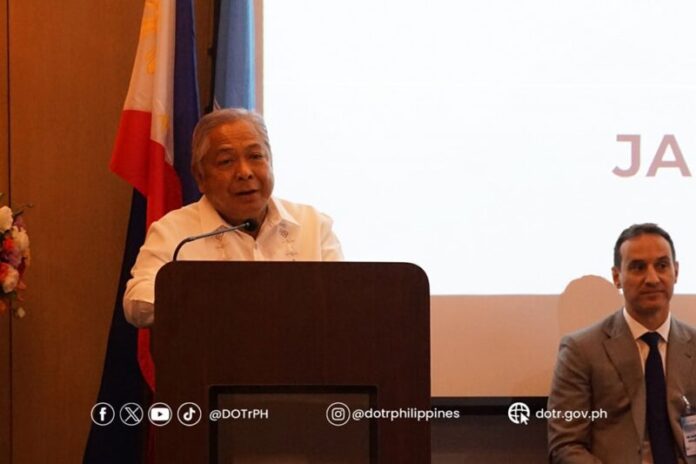
-
The Philippine government is promoting the use of biofuels as part of measures to achieve the aviation industry’s collective goal of net-zero emission by 2050, according to the Department of Transportation
-
Transport Secretary Jaime Bautista said the DOTr is partnering with industry stakeholders to achieve a nature-based carbon sink project, which includes the promotion of sustainable aviation fuel
-
The government has partnered with a local university for projects that would become the source of local air carriers’ emission offsetting requirements
The Philippine government is promoting the use of biofuels as part of measures to achieve the aviation industry’s collective goal of net-zero emissions by 2050, according to the Department of Transportation (DOTr).
During the 3rd International Civil Aviation Organization-European Union Aviation Safety Agency (ICAO-EASA) Forum on Civil Aviation in South East Asia on April 23, Transport Secretary Jaime Bautista said the DOTr is partnering with industry stakeholders for a nature-based carbon sink project.
“Part of the initiative is the promotion of biofuels or sustainable aviation fuels or SAF,” Bautista said.
“We partnered with a top local university to create opportunities for local carbon sink projects that would become source of local air carriers’ emission offsetting requirements,” he added.
Bautista said the ICAO-EASA forum is setting clear steps to achieve the net-zero emission goal of the global aviation industry for 2050, adopted by ICAO member states during the 41st ICAO Assembly in October 2022.
As the global aviation industry recovers from the effects of the COVID-19 pandemic, Bautista said civil aviation regulatory agencies in Europe and Southeast Asia must agree on a course of action towards safe and sustained connectivity to achieve the goal of net-zero emission by 2050.
“This enhanced cooperation among civil aviation regulatory agencies in Europe and Southeast Asia would hopefully lead to improved aviation safety and environmental sustainability while strengthening our resilience to shocks and disruptions in the region,” he pointed out.
The transport chief said that air traffic in 2023 rose year-on-year by 36.9%, 94.1% higher or almost double the pre-pandemic levels.
By 2041, the industry expects 19.3 billion passengers, 200 million tons of cargo, and 153.8 million aircraft movement.
A report released by the US Department of Agriculture Foreign Agricultural Service in 2023 titled “Philippines: Flying Green- Sustainable Aviation Fuel in the Philippines” said the Philippines is showing initiative in mitigating the impact of domestic and global aviation’s greenhouse gas emissions on climate change.
READ: PH aviation industry shows initiative in reducing GHG emissions
Cebu Pacific has began using sustainable aviation fuel as part of its corporate effort to cut greenhouse gas emissions while Philippine Airlines is investing in an all-out carbon reduction program that targets to attain net zero carbon emissions by 2050.




